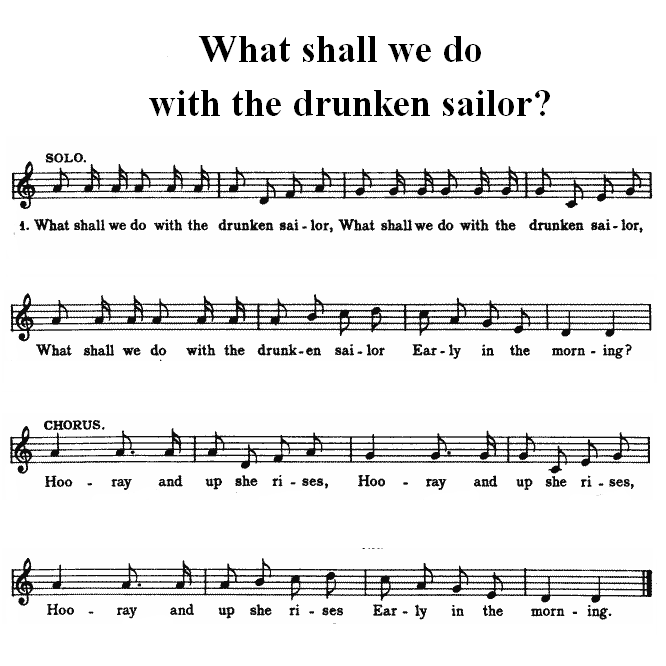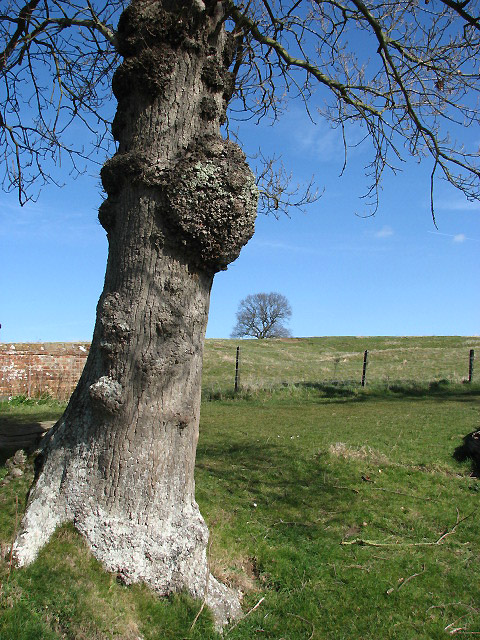|
Down To The Sea In Ships (album)
''Down to the Sea in Ships'' was released in 1956 as a 33 RPM album under the Decca record label. Burl Ives and the Ralph Hunter Singers perform classic sea shanties. Reception Allmusic critic Bruce Eder wrote: "Some of it may sound hokey in the 21st century, but in 1956 this was as close to authenticity as most listeners ever got, and it is still compelling listening, if one suspends his disbelief (which Ives makes it easy to do). What's more, the range of material speaks volumes about the sincerity of the effort involved, which may overcome some of the sense of artifice that one finds in records of this sort a half-century or more on." Track listing Side one #"Jack Was Every Inch a Sailor "Jack Was Every Inch A Sailor" is a traditional Newfoundland and Labrador folk song. It is a comical retelling of the Jonah tale, with a Newfoundland whaler as protagonist, but in this instance the whale gets his comeuppance.https://www.thecanadia ..." – 2:43 #" Santy Anna" – 2:34 ... [...More Info...] [...Related Items...] OR: [Wikipedia] [Google] [Baidu] |
Burl Ives
Burl Icle Ivanhoe Ives (June 14, 1909 – April 14, 1995) was an American musician, actor, and author with a career that spanned more than six decades. Ives began his career as an itinerant singer and guitarist, eventually launching his own radio show, ''The Wayfaring Stranger'', which popularized traditional folk songs. In 1942, he appeared in Irving Berlin's ''This Is the Army'' and became a major star of CBS Radio. In the 1960s, he successfully crossed over into country music, recording hits such as "A Little Bitty Tear" and "Funny Way of Laughin'". Ives was also a popular film actor through the late 1940s and '50s. His film roles included parts in ''So Dear to My Heart'' (1948) and ''Cat on a Hot Tin Roof'' (1958), as well as the role of Rufus Hannassey in ''The Big Country'' (1958), for which he won an Academy Award for Best Supporting Actor. Ives is often associated with the Christmas season. He did voice-over work as Sam the Snowman, narrator of the classic 1964 Christma ... [...More Info...] [...Related Items...] OR: [Wikipedia] [Google] [Baidu] |
Folk Music
Folk music is a music genre that includes traditional folk music and the contemporary genre that evolved from the former during the 20th-century folk revival. Some types of folk music may be called world music. Traditional folk music has been defined in several ways: as music transmitted orally, music with unknown composers, music that is played on traditional instruments, music about cultural or national identity, music that changes between generations (folk process), music associated with a people's folklore, or music performed by custom over a long period of time. It has been contrasted with commercial and classical styles. The term originated in the 19th century, but folk music extends beyond that. Starting in the mid-20th century, a new form of popular folk music evolved from traditional folk music. This process and period is called the (second) folk revival and reached a zenith in the 1960s. This form of music is sometimes called contemporary folk music or folk rev ... [...More Info...] [...Related Items...] OR: [Wikipedia] [Google] [Baidu] |
Decca Records
Decca Records is a British record label established in 1929 by Edward Lewis (Decca), Edward Lewis. Its U.S. label was established in late 1934 by Lewis, Jack Kapp, American Decca's first president, and Milton Rackmil, who later became American Decca's president. In 1937, anticipating Nazi Germany, Nazi aggression leading to World War II, Lewis sold American Decca and the link between the U.K. and U.S. Decca labels was broken for several decades. The British label was renowned for its development of recording methods, while the American company developed the concept of cast albums in the musical genre. Both wings are now part of the Universal Music Group. The U.S. Decca label was the foundation company that evolved into UMG (Universal Music Group). Label name The name dates back to a portable phonograph, gramophone called the "Decca Dulcephone" patented in 1914 by musical instrument makers Barnett Samuel and Sons. The name "Decca" was coined by Wilfred S. Samuel by merging the w ... [...More Info...] [...Related Items...] OR: [Wikipedia] [Google] [Baidu] |
Sea Shanty
A sea shanty, chantey, or chanty () is a genre of traditional Folk music, folk song that was once commonly sung as a work song to accompany rhythmical labor aboard large Merchant vessel, merchant Sailing ship, sailing vessels. The term ''shanty'' most accurately refers to a specific style of work song belonging to this historical Musical repertoire, repertoire. However, in recent, popular usage, the scope of its definition is sometimes expanded to admit a wider range of repertoire and characteristics, or to refer to a "maritime work song" in general. From Latin ''cantare'' via French ''chanter'', the word ''shanty'' emerged in the mid-19th century in reference to an appreciably distinct genre of work song, developed especially on merchant vessels, that had come to prominence in the decades prior to the American Civil War although found before this. Shanty songs functioned to synchronize and thereby optimize labor, in what had then become larger vessels having smaller crews and o ... [...More Info...] [...Related Items...] OR: [Wikipedia] [Google] [Baidu] |
Allmusic
AllMusic (previously known as All Music Guide and AMG) is an American online music database. It catalogs more than three million album entries and 30 million tracks, as well as information on musicians and bands. Initiated in 1991, the database was first made available on the Internet in 1994. AllMusic is owned by RhythmOne. History AllMusic was launched as ''All Music Guide'' by Michael Erlewine, a "compulsive archivist, noted astrologer, Buddhist scholar and musician". He became interested in using computers for his astrological work in the mid-1970s and founded a software company, Matrix, in 1977. In the early 1990s, as CDs replaced LPs as the dominant format for recorded music, Erlewine purchased what he thought was a CD of early recordings by Little Richard. After buying it he discovered it was a "flaccid latter-day rehash". Frustrated with the labeling, he researched using metadata to create a music guide. In 1990, in Big Rapids, Michigan, he founded ''All Music Guide' ... [...More Info...] [...Related Items...] OR: [Wikipedia] [Google] [Baidu] |
Jack Was Every Inch A Sailor
"Jack Was Every Inch A Sailor" is a traditional Newfoundland and Labrador folk song. It is a comical retelling of the Jonah tale, with a Newfoundland whaler as protagonist, but in this instance the whale gets his comeuppance.https://www.thecanadianencyclopedia.ca/en/article/quotjack-was-every-inch-a-sailorquot-emc. It may have been adapted from a New York City music-hall Music hall is a type of British theatrical entertainment that was popular from the early Victorian era, beginning around 1850. It faded away after 1918 as the halls rebranded their entertainment as variety. Perceptions of a distinction in Bri ... song "Every Inch a Sailor", which itself was a burlesque of "HMS Pinafore". This song was covered by Canadian children's singing group Sharon, Lois and Bram on The Elephant Show. Lyrics Upon the isle of Newfoundland there lived a sailor boy He was a handsome sailor lad, his father's pride and joy He was born on board his father's ship on a dark and stormy morn ... [...More Info...] [...Related Items...] OR: [Wikipedia] [Google] [Baidu] |
Santianna
"Santianna", also known as "Santiana", "Santy Anna", "Santayana", "Santiano", "Santy Anno" and other variations, is a sea shanty referring to the Mexican General Antonio López de Santa Anna. The song is listed as number 207 in the Roud Folk Song Indexbr> Origin The theme of the shanty, which dates from at least the 1850s, may have been inspired by topical events in the news related to conflicts between the armies of Mexico, commanded by Antonio López de Santa Anna, and the U.S., commanded by Zachary Taylor, in the Mexican–American War. The lyrics are not historically accurate: for example, both the Battle of Monterrey and the Battle of Molino del Rey (different versions refer to one or other) were US victories, not Mexican ones. Some suggest that this tradition was caused by British sailors, who deserted their ships to join Santa Anna's forces. Lyrics As with many shanties, there are many recorded variations on the words and tunes, which may have developed on particular shippi ... [...More Info...] [...Related Items...] OR: [Wikipedia] [Google] [Baidu] |
Drunken Sailor
"Drunken Sailor", also known as "What Shall We Do with a/the Drunken Sailor?" or "Up She Rises", is a traditional sea shanty, listed as No. 322 in the Roud Folk Song Index. It was sung onboard sailing ships at least as early as the 1830s, and it shares its tune with the traditional Irish folk song "'' Óró sé do bheatha abhaile''". The song's lyrics vary, but usually contain some variant of the question, "What shall we do with a drunken sailor, early in the morning?" In some styles of performance, each successive verse suggests a method of sobering or punishing the drunken sailor. In other styles, further questions are asked and answered about different people. "Drunken Sailor" was revived as a popular song among non-sailors in the 20th century, and grew to become one of the best-known songs of the shanty repertoire among mainstream audiences. It has been performed and recorded by many musical artists and appeared regularly in popular culture. History Origin and melody T ... [...More Info...] [...Related Items...] OR: [Wikipedia] [Google] [Baidu] |
Highland Laddie
"Highland Laddie", also known as "Hielan' Laddie", is the name of a Scottish popular folk tune "If Thou'lt Play Me Fair Play", but as with many old melodies various sets of words can be sung to it, of which Robert Burns's poem "Highland Laddie" is probably the best known. "If Thou'lt Play Me Fair Play" has been reworked several times since Burns set down his words, Donkey Riding being one variant. Highland Regiments raised in the 18th and early 19th centuries employed many unique symbols to differentiate themselves from other regiments and enlisted distinctive music to announce their arrival, but as a result of the Cardwell Reforms of 1881, all British Army Highland Regiments were required to use "Highland Laddie" as their regimental march. Over time, many of these regiments had managed to return to their pre-Cardwell marches when, in March 2006, the establishment of the Royal Regiment of Scotland saw the disappearance of all Scotland's historic infantry regiments and their disti ... [...More Info...] [...Related Items...] OR: [Wikipedia] [Google] [Baidu] |
The Sweet Trinity
"The Sweet Trinity", also known as "The Golden Vanity" or "The Golden Willow Tree", is an English folk song or sea shanty, listed as Child Ballads, Child Ballad 286. The first surviving version, about 1635, was "Sir Walter Raleigh Sailing In The Lowlands (Shewing how the famous Ship called the Sweet Trinity was taken by a false Gally & how it was again restored by the craft of a little Sea-boy, who sunk the Gally)". Synopsis A captain of a ship (the ''Sweet Trinity'' or ''Golden Vanity'' or ''Golden Willow Tree'' of the title) laments the danger it is in; Sir Walter Raleigh complains that it was captured by a galley, but the more common complaint is that it is in danger from another ship, which may be French, Turkish, Spanish, or (especially in American variants) British. A cabin boy offers to solve the problem. The captain promises him rich rewards, which vary enormously between versions. The boy swims to the enemy ship, bores holes in its hull, and sinks it. He swims back t ... [...More Info...] [...Related Items...] OR: [Wikipedia] [Google] [Baidu] |
1956 Albums
Events January * January 1 – The Anglo-Egyptian Sudan, Anglo-Egyptian Condominium ends in Sudan. * January 8 – Operation Auca: Five U.S. evangelical Christian Missionary, missionaries, Nate Saint, Roger Youderian, Ed McCully, Jim Elliot and Pete Fleming, are killed for trespassing by the Huaorani people of Ecuador, shortly after making contact with them. * January 16 – Egyptian leader Gamal Abdel Nasser vows to reconquer Palestine (region), Palestine. * January 25–January 26, 26 – Finnish troops reoccupy Porkkala, after Soviet Union, Soviet troops vacate its military base. Civilians can return February 4. * January 26 – The 1956 Winter Olympics open in Cortina d'Ampezzo, Italy. February * February 11 – British Espionage, spies Guy Burgess and Donald Maclean (spy), Donald Maclean resurface in the Soviet Union, after being missing for 5 years. * February 14–February 25, 25 – The 20th Congress of the Communist Party of the Soviet Union is held in Mosc ... [...More Info...] [...Related Items...] OR: [Wikipedia] [Google] [Baidu] |
Burl Ives Albums
A burl (American English) or burr (British English) is a tree growth in which the grain has grown in a deformed manner. It is commonly found in the form of a rounded outgrowth on a tree trunk or branch that is filled with small knots from dormant buds. Burl formation is typically a result of some form of stress such as an injury or a viral or fungal infection. Burls yield a very peculiar and highly figured wood sought after in woodworking, and some items may reach high prices on the wood market. Poaching of burl specimens and damaging the trees in the process poses a problem in some areas. Description A burl results from a tree undergoing some form of stress. It may be caused by an injury, virus or fungus. Most burls grow beneath the ground, attached to the roots as a type of malignancy that is generally not discovered until the tree dies or falls over. Such burls sometimes appear as groups of bulbous protrusions connected by a system of rope-like roots. Almost all burl ... [...More Info...] [...Related Items...] OR: [Wikipedia] [Google] [Baidu] |





